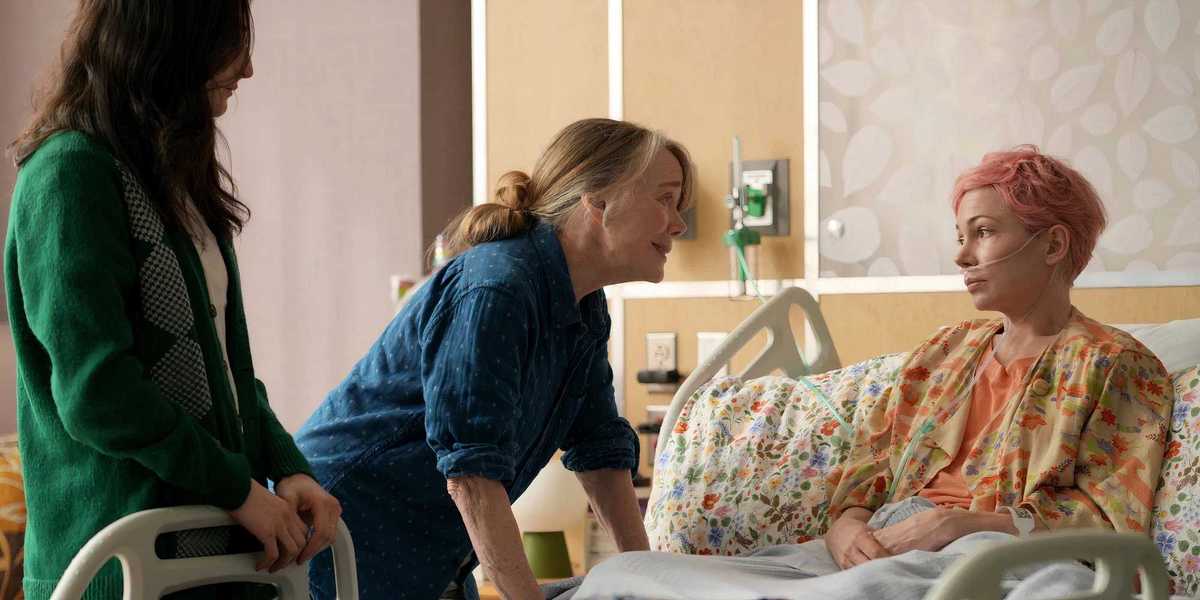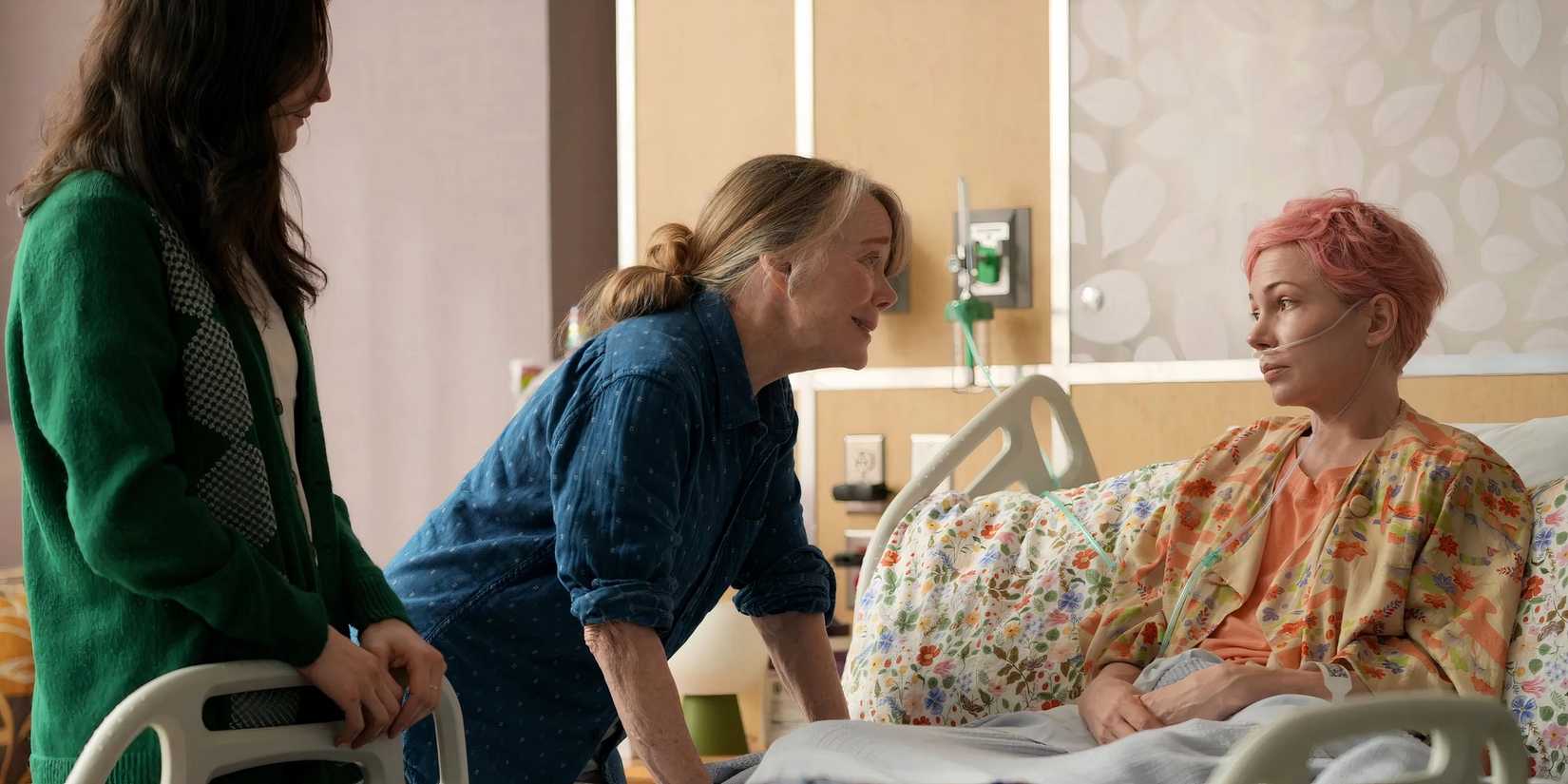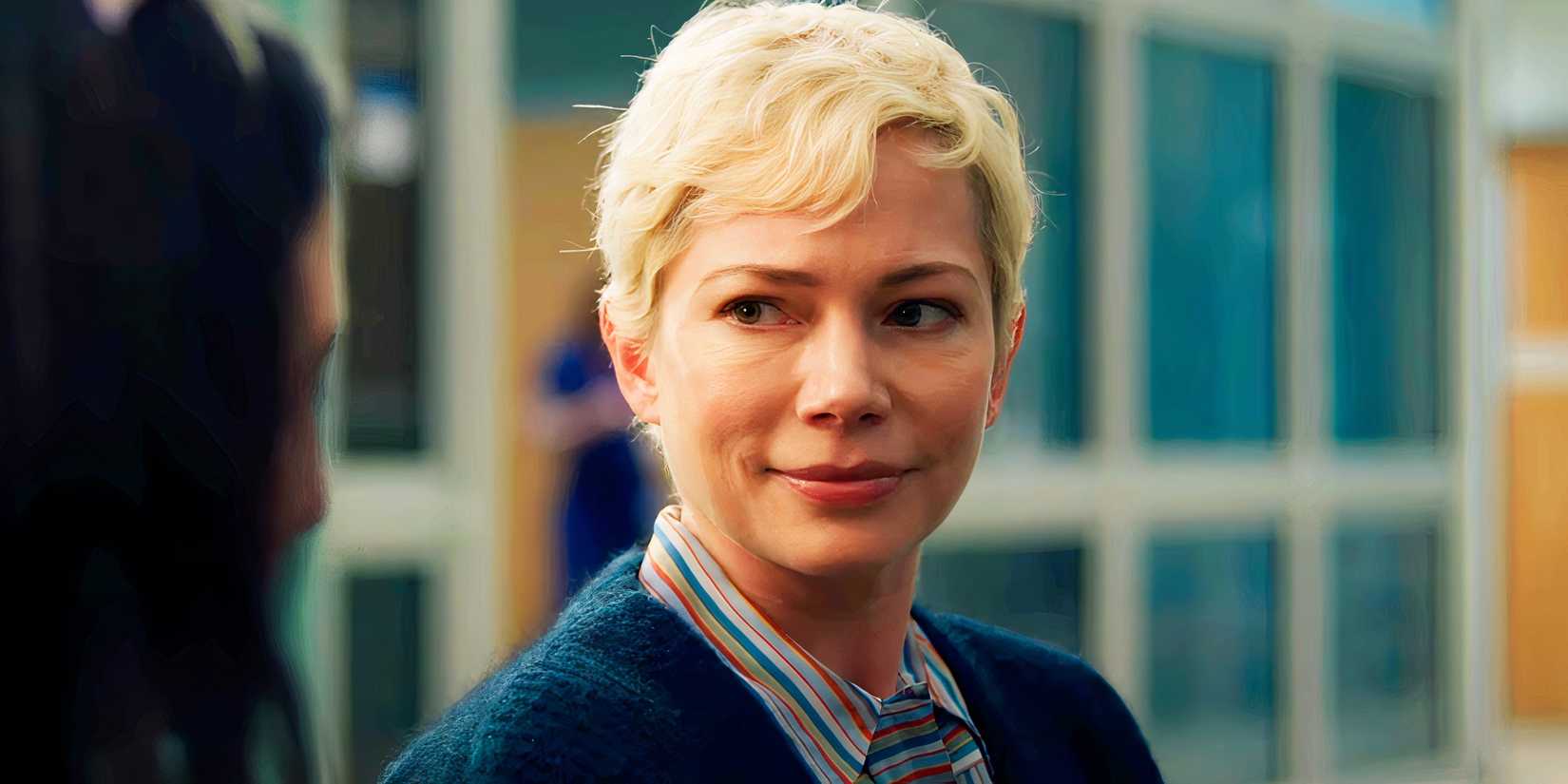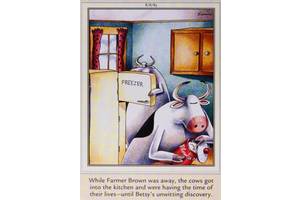I've Watched A Loved One Die & FX's Dying For Sex Gets It Painfully (& Hilariously) Right
Trigger Warning: This article contains discussions of terminal illness and death.
Warning! Spoilers for FX's Dying for Sex ahead!
I haven't often seen my experience with death accurately represented in media, so FX's Dying for Sex was a significant surprise. The miniseries is based on the podcast of the same name created by Nikki Boyer, who watched her best friend die from Stage IV breast cancer. When I watched FX's version, I was unfamiliar with the podcast and was, therefore, expecting a romanticized "dying lover" story. This was, of course, not what I got. Molly found love in Dying for Sex, but her BDSM sexual revolution was the series' central focus. From there, the final episodes held nothing back regarding Molly's actual death.
In 2019, I watched a loved one die from a terminal illness. I had experienced loss previously, but this was the first time that I had been part of the actual process from beginning to end. I spoke with hospice, helped set up a plan for her comfort and pain management, and listened to the absolutely fantastic nurse explain how things would proceed. After several days of practically living at the facility, I sat by my loved one's side as she took her last breath. This was a life-altering experience for me that was unlike anything I would have anticipated. My perspective of death changed, and I was shocked to see this reflected in Dying for Sex.
Dying For Sex Is Surprisingly Accurate In Its Representation Of The Stages Of Death
The FX Series Reflected My Own Experience
Movies and TV shows about a terminally ill protagonist typically skip over the actual death process. If the death scene is actually shown, it often comes on in a sudden flurry of drama. Because of this, I used to think of death resulting from a terminal illness as the body suddenly failing to function. It worked, and then it didn't. After I saw the truth, such inaccurate presentations of death in media stood out like a sore thumb. Dying for Sex was highly refreshing.
When Molly chose to stop treating her cancer and move into the hospice ward, Nurse Amy talked her through what would come next. She explained that the body knows how to die, and the experience comes in stages that span weeks or days. Thankfully, my loved one had a similarly fantastic hospice nurse who broke this all down as well. Everything described to us happened, proving just how much of a scientific and predictable process dying is. I was devastated by the loss of my loved one, but I couldn't help but feel that the calm, peaceful process of her death was beautiful.
Eyes don't gently flutter closed as a delicate hand falls limp to the covers
Of course, this isn't to say that there aren't ugly sides to death, and Dying for Sex accurately depicted these as well. The body is pretty gross when it comes down to it, and its process of shutting down is far from glamorous. Eyes don't gently flutter closed as a delicate hand falls limp to the covers. When a person is in the final stages of dying, their neck extends, their mouth hangs open, and their slow breaths come with a rattle (I found myself compulsively clearing my own throat in an effort to help). Molly's death was precisely the same in Dying for Sex—ugly but lovely, too.
Nurse Amy's Enthusiasm In Dying For Sex Reflects A Lovelier Side Of Death Than Media Typically Likes
People Don't Typically Like To Talk About Death That Way
My favorite character in the final episodes of Dying for Sex was Nurse Amy. As I previously stated, my loved one had an excellent hospice nurse whose description of what we should expect was invaluable. However, she wasn't quite as over-the-top and enthusiastic about death as Molly's nurse. It was clear in Dying for Sex that Amy loved her job. She explained the dying process with excitement and fascination, describing certain stages as her "favorite." This was presented as comical in the FX series, and Molly, Nikki, and Gail responded in kind. Still, I feel Amy's enthusiasm was profoundly important.
Nurse Amy described the "rally" stage of death, during which a person who has been close to death (possibly unconscious for days) seems to recover temporarily. This is a miraculous, beautiful gift, allowing the dying person to spend final lucid moments with their loved ones.
Amy compared the process of death to giving birth or having an orgasm, and this moment in Dying for Sex really resonated with my experience. As I spent long days by my loved one's side, I considered how it was to wait for my niece and nephew to be born. The energy behind the anticipation was different, but this idea of observing the body at work in something mysterious, miraculous, and beautiful felt weirdly similar. Watching my loved one die made me less afraid of death, and I have heard hospice nurses share a similar sentiment. Amy described the process as "sacred," and even as a non-spiritual person, I couldn't agree more.
Dying For Sex's Comical Spin On Death Allowed It To Hold Nothing Back
Laughter Is Important During Death
Perhaps the best part of Dying for Sex's portrayal of death and dying was the use of comedy. Death is undoubtedly sad, but in my experience, it's impossible to remain sad throughout the entire process. The tension has to break at a certain point, and nothing is as therapeutic as laughter. Dying for Sex demonstrated this perfectly with Molly's death scene.
Just as Nurse Amy warned, Molly died with her mouth hanging grotesquely open, and Nikki loyally did her duty and carefully closed her friend's jaw. I was worried for a moment while watching that Dying for Sex would divert from realism and that Molly's mouth would stay closed (I tried something similar with my loved one). However, her mouth comically smacked open, and Nikki was forced to wedge her hoodie under Molly's chin to keep it closed. It was perfectly hilarious, allowing me to laugh through the copious tears.
The comedy of this moment was a device that Dying for Sex had used to perfection through every episode. It allowed the series to present horrible, painful ideas and scenes without feeling too heavy. Most movies and TV shows hold back far too much when it comes to uncomfortable topics, but the FX series went all in. Just as in real life, some dark comedy helps these concepts go down smoothly.
Why It's So Important That Media Portray Death Accurately
An Overly Romanticized Or Dramatized Understanding Of Death Can Be A Hindrance
Watching my loved one die changed my perspective on dying, and it allowed me to approach another similar situation in my life with more confidence. In 2024, I sat by the bedside of another terminally ill loved one. This time, I wasn't with them when they died (they waited to go until they were alone), but my previous experience meant I was ready for what was to come. When they had their rally, I knew exactly what to do. We sat up together, giggling and watching You've Got Mail until we both fell asleep. Had I not been familiar with the dying process, I might have spent that time in panic or would have falsely believed that she was getting better.
Most people will experience the death of a loved one at some point, and a realistic understanding of what this looks like can make all the difference regarding how they process and remember it.
For this second loved one, the hospice nurse wasn't quite as effective in the way of education. Their other family members felt lost and confused, and it was difficult to help them understand that death wasn't what they had seen in the media. Said and done, I am immensely grateful to Dying for Sex for portraying death as accurately as it did. Most people will experience the death of a loved one at some point, and a realistic understanding of what this looks like can make all the difference regarding how they process and remember it. Media is never perfect, but Dying for Sex is undoubtedly a step in the right direction.

Dying for Sex
- Release Date
- 2025 - 2025-00-00
- Network
- Hulu
Cast
 Michelle WilliamsMolly Kochan
Michelle WilliamsMolly Kochan Jenny SlateNikki
Jenny SlateNikki













Your comment has not been saved